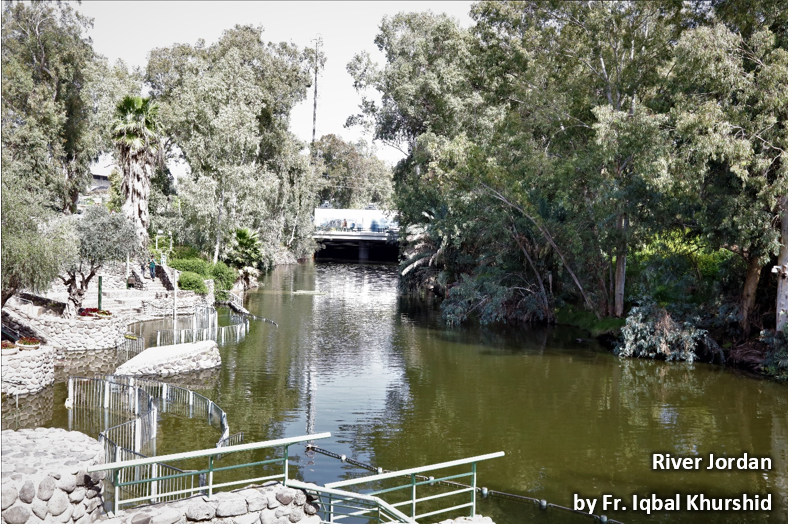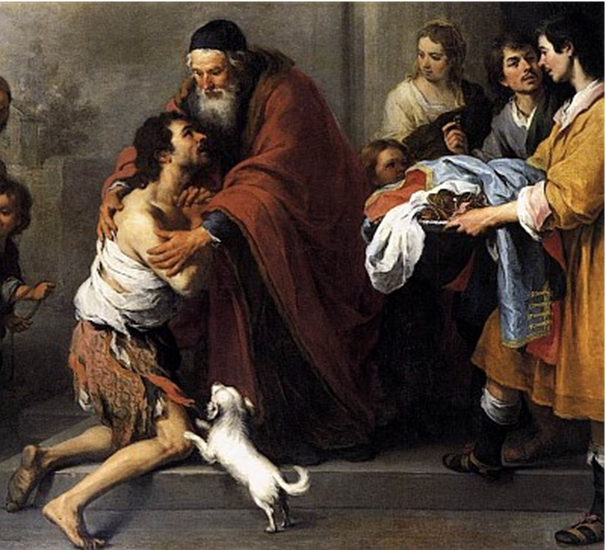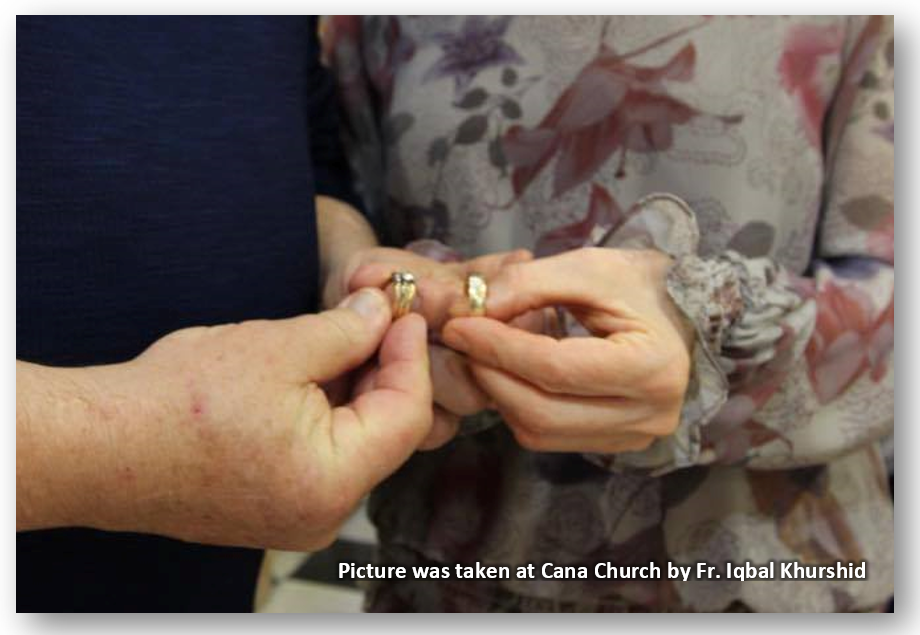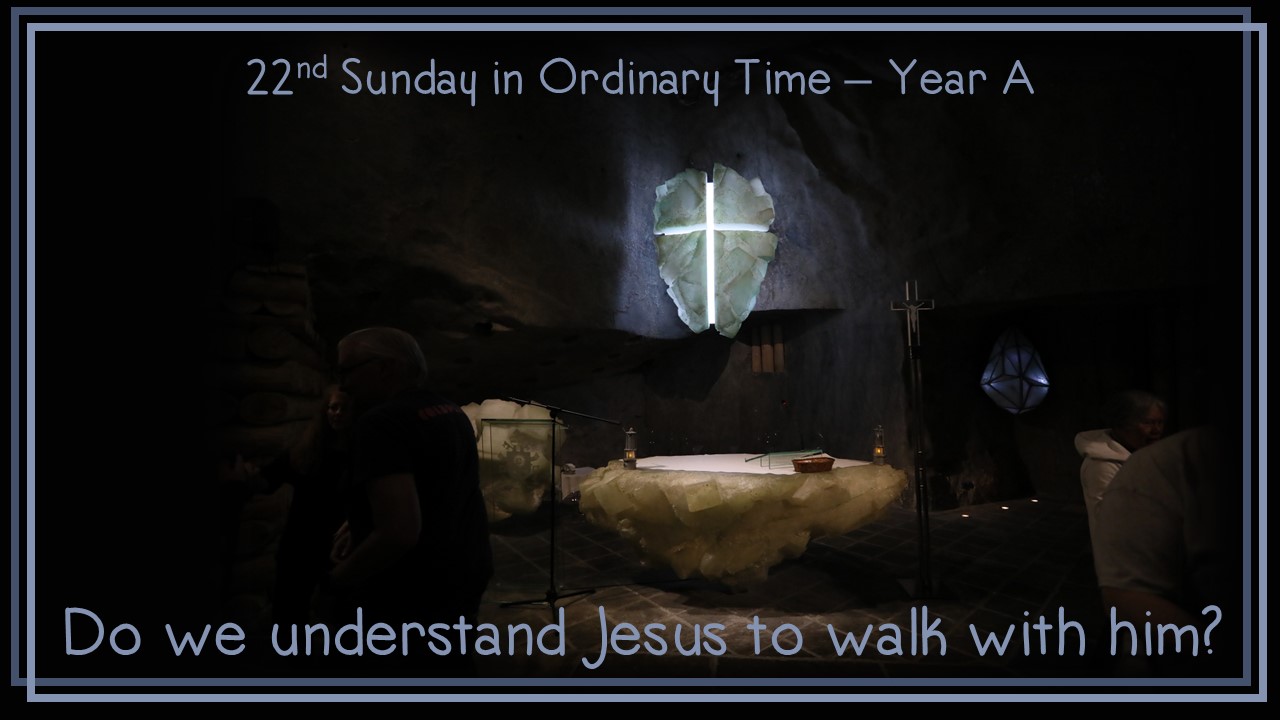
The Feast of the Baptism of the Lord, Year C – Sunday, January 9, 2022
IN HIM WE ARE NEW
A Zen master was given a beautifully crafted crystal cup. It was a gift from a former student.
He was very grateful. Every day, he enjoyed drinking out of his glass. He would show it to visitors and tell them about the kindness of his student.
But every morning, he held the cup in his hand for a few seconds and reminded himself: “This glass is already broken.”
One day, a clumsy visitor toppled the glass on its shelf. The cup fell. When it hit the floor, it was smashed into thousands of tiny pieces.
The other visitors gasped in shock, but the Zen master remained calm. Looking at the mess in front of his feet, he said: “Ah. Yes. Let’s begin.”
He picked up a broom and started sweeping.
Isn’t a beautiful image of a crystal cup comparable to the Sacrament of Baptism? Our lives in the Lord are like beautiful crystal cups which are kept free from the poison of sin through the Baptism. Today as we celebrate the Feast of Baptism of the Lord, we do see the reflection of our Baptism in him. Once we receive Baptism, we become new in him “From now on, therefore, we regard no one from a human point of view; even though we once knew Christ from a human point of view, we know him no longer in that way. So, if anyone is in Christ, there is a new creation: everything old has passed away; see, everything has become new!” as St. Paul writes.
According to the Catechism of the Catholic Church “Holy Baptism is the basis of the whole Christian life, the gateway to life in the Spirit and the door which gives access to the other sacraments.” Through Baptism we are freed from sin and reborn as sons of God; we become members of Christ, we are incorporated into the Church and made sharers in her mission: “Baptism is the sacrament of regeneration through water in the word” Furthermore, we read “From the very day of Pentecost the Church has celebrated and administered holy Baptism.” Indeed St. Peter declares to the crowd astounded by his preaching: “Repent and be baptized every one of you in the name of Jesus Christ for the forgiveness of your sins; and you shall receive the gift of the Holy Spirit.” The apostles and their collaborators offer Baptism to anyone who believed in Jesus: Jews, the God-fearing, pagans. Always, Baptism is seen as connected with faith: “Believe in the Lord Jesus, and you will be saved, you and your household,” St. Paul declared to his jailer in Philippi. And the narrative continues, the jailer “was baptized at once, with all his family.” And “According to the Apostle Paul, the believer enters through Baptism into communion with Christ’s death, is buried with him, and rises with him: “Do you not know that all of us who have been baptized into Christ Jesus were baptized into his death? We were buried therefore with him by baptism into death, so that as Christ was raised from the dead by the glory of the Father, we too might walk in newness of life”. The baptized have “put on Christ.” Through the Holy Spirit, Baptism is a bath that purifies, justifies, and sanctifies. Hence Baptism is a bath of water in which the “imperishable seed” of the Word of God produces its life-giving effect. St. Augustine says of Baptism: “The word is brought to the material element, and it becomes a sacrament.”
St. Gregory of Nazianzus invites us all to reflect on the importance of the Sacrament of Baptism, as we celebrate the Feast of Baptism of the Lord with these words: “Christ is bathed in light; let us also be bathed in light. Christ is baptized’ let us also go down with him and rise with him”. Pope Francis addressing the congregation on this feast day said: Baptism integrates us into the body of the Church, into the holy People of God. And in this body, in this people journeying on, faith is passed down from generation to generation: it is the faith of the Church. It is the faith of Mary, our Mother, the faith of St Joseph, of St Peter, of St Andrew, of St John, the faith of the Apostles and of the Martyrs, which has come down to us, through Baptism: the chain of transmission of the faith. At first glance, the Baptism of the Lord might seem an odd feast. Since the Catholic Church teaches that the Sacrament of Baptism is necessary for the remission of sins, particularly Original Sin, why was Christ baptized? After all, He was born without Original Sin, and He lived His entire life without sinning. Therefore, He did not need the sacrament, as we do”.
Holy Father Pope Francis explains the mystery in this way “When Jesus received the Baptism of repentance from John the Baptist, showing solidarity with the repentant people — He without sin and with no need for conversion — God the Father made his voice heard from heaven: “This is my beloved Son, with whom I am well pleased”. Jesus receives approval from the heavenly Father, who sent him precisely that he might accept to share our condition, our poverty. Sharing is the true way to love. Jesus does not dissociate himself from us, he considers us brothers and sisters and he shares with us. And so, he makes us sons and daughters, together with him, of God the Father. This is the revelation and source of true love. And this is the great time of mercy”.
Just take a few moments to go back to the story which I wrote in the beginning of this reflection and reflect on the answer of the monk after crystal cup was broken “Ah, yes. Let’s begin”. Isn’t it true that after receiving Baptism, time to time we are tempted and become weak then what our Baptism tells us to do “Let’s begin?” There are three very important lessons we must learn” First we are purified from our Original Sin and have to share in his divinity who shared our humanity. Secondly, we become sons and daughters of God who has given us share in the inheritance of his only Begotten Son who died on the Holy Cross to grant us eternal life. Third and last lesson we learn that we become new in him, leaving our old humanity, and moving forward to become saints who proclaim his name day and night.
In submitting Himself humbly to the Baptism of St. John the Baptist, however, Christ provided the example for the rest of us. If even He should be baptized, though He did not need it, how much more should the rest of us be thankful for this sacrament, which frees us from the darkness of sin and incorporates us into the Church, the life of Christ on earth! His Baptism, therefore, was necessary—not for Him, but for us.
Many of the Fathers of the Church, as well as the medieval Scholastics, saw Christ’s Baptism as the institution of the sacrament. His Flesh blessed the water, and the descent of the Holy Spirit (in the form of a dove) and the voice of God the Father announcing that this was His Son, in Whom He was well pleased, marked the beginning of Christ’s public ministry. St. Paul sees baptism as a source of dying with Him and rising back to life with him: “Therefore we have been buried with him by baptism into death, so that, just as Christ was raised from the dead by the glory of the Father, so we too might walk in newness of life.
In fact, there is an invocation which the liturgy has us repeat during the Season of Advent: “O that thou wouldst rend the heavens and come down” (Is 64:1). If the heavens remain closed, our horizon in this earthly life is dark and without hope. Instead, in celebrating Christmas, once again faith has given us the certainty that the heavens have been rent with the coming of Christ. And on the day of the baptism of Christ we continue to contemplate the heavens opened. The manifestation of the Son of God on earth marks the beginning of the great time of mercy, after sin had closed the heavens, raising itself as a barrier between the human being and his Creator. With the birth of Jesus, the heavens open! God gives us in Christ the guarantee of an indestructible love. From the moment the Word became flesh it is therefore possible to see the open heavens. It was possible for the shepherds of Bethlehem, for the Magi of the East, for the Baptist, for Jesus’ Apostles, and for St Stephen, the first martyr, who exclaimed: “Behold, I see the heavens opened!” (Acts 7:56). And it is possible for each one of us, if we allow ourselves to be suffused with God’s love, which is given to us for the first time in Baptism by means of the Holy Spirit. Let us allow ourselves to be invaded by God’s love! This is the great time of mercy! Do not forget it: this is the great time of Mercy!
Our Baptism not only helps us to clean and purify ourselves, but it does help us to help others to live their lives in purity. I guess this story by an unknown author will help us to understand the real spirit of our Baptism and then our role as Christians in the world:
Every Sunday morning, I take a light jog around a park near my home. There’s a lake located in one corner of the park. Each time I jog by this lake, I see the same elderly woman sitting at the water’s edge with a small metal cage sitting beside her.
This past Sunday my curiosity got the best of me, so I stopped jogging and walked over to her. As I got closer, I realized that the metal cage was in fact a small trap. There were three turtles, unharmed, slowly walking around the base of the trap. She had a fourth turtle in her lap that she was carefully scrubbing with a spongy brush.
“Hello,” I said. “I see you here every Sunday morning. If you don’t mind my nosiness, I’d love to know what you’re doing with these turtles.”
She smiled. “I’m cleaning off their shells,” she replied. “Anything on a turtle’s shell, like algae or scum, reduces the turtle’s ability to absorb heat and impedes its ability to swim. It can also corrode and weaken the shell over time.”
“Wow! That’s really nice of you!” I exclaimed.
She went on: “I spend a couple of hours each Sunday morning, relaxing by this lake and helping these little guys out. It’s my own strange way of making a difference.”
“But don’t most freshwater turtles live their whole lives with algae and scum hanging from their shells?” I asked.
“Yep, sadly, they do,” she replied.
I scratched my head. “Well then, don’t you think your time could be better spent? I mean, I think your efforts are kind and all, but there are freshwater turtles living in lakes all around the world. And 99% of these turtles don’t have kind people like you to help them clean off their shells. So, no offense… but how exactly are your localized efforts here truly making a difference?”
The woman giggled aloud. She then looked down at the turtle in her lap, scrubbed off the last piece of algae from its shell, and said, “Sweetie, if this little guy could talk, he’d tell you I just made all the difference in the world.”
Our Baptism unites us to the Lord as St. Paul says “For if we have been united with him in a death like his, we will certainly be united with him in a resurrection like his. We know that our old self was crucified with him so that the body of sin might be destroyed, and we might no longer be enslaved to sin. For whoever has died is freed from sin. But if we have died with Christ, we believe that we will also live with him” (Romans 6:4-8). “Jesus rises from the waters; the world rises with him. The heavens like Paradise with its flaming sword, closed by Adam for himself and his descendants, are rent open. The Spirit comes to him as to an equal, bearing witness to his Godhead. A voice bears witness to him from heaven, his place of origin. The Spirit descends in bodily form like the dove that so long ago announced the ending of the flood and so gives honor to the body that is one with God” as St. Gregory explained.
Through Baptism we not only leave our old life of sin, but we have become new creation in Him who took our nature be like us but sin. In Baptism we are consecrated by the Holy Spirit. This is what the word “Christian” means, it means consecrated like Jesus, in the same Spirit in which Jesus was immersed throughout his earthly existence. St. Paul reminds everyone of us to have the same mind like Jesus “Let the same mind be in you that was in Christ Jesus, who, though he was in the form of God, did not regard equality with God as something to be exploited, but emptied himself, taking the form of a slave, being born in human likeness. And being found in human form, he humbled himself and became obedient to the point of death— even death on a cross” (Philippians 2:5-8).
Here are some quotes from some saints and popes to understand the true meaning of baptism”
The Lord was Baptized, not to be cleansed Himself, but to cleanse the waters, so that those waters, cleansed by the flesh of Christ which knew no sin, might have the power of Baptism. –St. Ambrose of Milan
The rediscovery of the value of one’s baptism is the basis of the missionary commitment of every Christian because we see in the Gospel that he who lets himself be fascinated by Christ cannot do without witnessing the joy of following in his footsteps… we understand even more that, in virtue of baptism, we have an inherent missionary vocation. – Pope Benedict XVI
By Baptism we are made flesh of the Crucified – Pope St. Leo the Great
If, therefore, there is any grace in the water, it is not from the nature of water but from the Spirit’s presence there. – St. Basil the Great, Doctor of the Church,
Every baptized person should consider that it is in the womb of the Church where he is transformed from a child of Adam to a child of God. – St. Vincent Ferrer
The soul is regenerated in the sacred waters of baptism and thus becomes God’s child. – St. Maximilian Kolbe
No one can begin a new life, unless he repents of the old. – St. Augustine, Doctor of the Church
Just as a man cannot live in the flesh unless he is born in the flesh, even so a man cannot have the spiritual life of grace unless he is born again spiritually. This regeneration is affected by Baptism: “Unless a man is born again of water and the Holy Spirit, he cannot enter into the kingdom of God” (Jn 3:5) – St. Thomas Aquinas
Baptism is not the work of man but of Christ, and this sacrament is so holy that it would not be defiled, even if the minister were a murderer. – St. Isidore, Doctor of the Church
Their examples give witness to the fact that baptism commits Christians to participate boldly in the spread of the Kingdom of God, cooperating, if necessary, with the sacrifice of one’s own life…This martyrdom of ordinary life is a particularly important witness in the secularized societies of our time. It is the peaceful battle of love that all Christians, like Paul, must fight tirelessly; the race to spread the Gospel that commits us until death. May Mary, Queen of Martyrs and Star of Evangelization, help us and assist us in our daily witness. – Pope Benedict XVI
On the Baptism of the Lord as heaven was opened and the Holy Spirit came down from heaven and rested on Jesus, during our Baptism experience the same that God anoints us with the gift of the Holy Spirit to be his witnesses to the end of the world. As the voice came from heaven “He is my beloved Son with whom I am well pleased, listen to him” in the similar manner we do hear the voice of God calling us to be his sons and daughters and to listen to his voice. After the Baptism as Jesus our Lord goes off to begin his public ministry and proclaim the message of God, we too are called to be his witnesses in the world; “By your work people will know that you’re my disciples” as Lord Jesus.
So today as we celebrate the Feast of the Baptism of the Lord, let’s renew our baptismal promises and be faithful to him who died on the Cross to grant us eternal life.
As you read the following story, I am leaving you with this question “How is Baptism changing you?”
Two men visit a Zen master.
The first man says: “I’m thinking of moving to this town. What’s it like?”
The Zen master asks: “What was your old town like?”
The first man responds: “It was dreadful. Everyone was hateful. I hated it.”
The Zen master says: “This town is very much the same. I don’t think you should move here.”
The first man leaves, and the second man comes in.
The second man says: “I’m thinking of moving to this town. What’s it like?”
The Zen master asks: “What was your old town like?”
The second man responds: “It was wonderful. Everyone was friendly and I was happy. Just interested in a change now.”
The Zen master says: “This town is very much the same. I think you will like it here.”
What we seek is what we find. The reasons why you do what you do matter as much, if not more, as what you end up doing. Because they shape how you seek. So, ultimately, they’ll also determine what you find.
Other Sermons In This Series

4th Sunday of Lent – Year C – March 27, 2022
March 24, 2022

2nd Sunday in Ordinary Time Year C – Sunday, January 16, 2022
January 14, 2022

22nd Sunday in Ordinary Time – Year A ~ September 3, 2023
September 01, 2023

